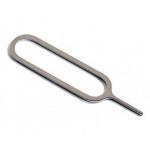How to spell the surname evil in English. How to write Russian names in English letters
There is nothing more natural than to start learning English by writing your own name in Latin letters.
Writing Russian names in English often causes difficulties - largely because there are no uniform rules in this regard. However, a set of general principles can still be defined.
- Read further in our article about the special transliteration rules currently used when issuing passports.
General rules for transliteration of names
The first thing to remember is names and surnames are not translated especially when it comes to documents and business correspondence. You should not pick up English-language counterparts and call Elena - Helen, and Michael - Michael. Instead, the name should be transliterated, that is, written in Latin. In this case, the following system of correspondence can be used:
| A | A | Andrey (Andrey) | O | O | Olga (Olga) |
| B | B | Boris (Boris) | P | P | Pavel (Pavel) |
| AT | V | Valery (Valery) | R | R | Roman (Roman) |
| G | G | Gleb (Gleb) | With | S | Sergey (Sergey) |
| D | D | Dmitry (Dmitry) | T | T | Tatyana (Tatiana) |
| E | Ye/E | Yelena, Elena (Elena) | At | U | Ulyana (Ulyana) |
| Yo | Yo/E | Pyotr, Petr (Peter) | F | F | Filipp (Philip) |
| F | Zh | Zhanna (Jeanne) | X | Kh | Khariton (Khariton) |
| Z | Z | Zinaida (Zinaida) | C | Ts | Tsarev (Tsarev) |
| And | I | Irina (Irina) | H | Ch | Chaykin (Chaykin) |
| Y | Y | Timofe y(Timof th) | W | Sh | Sharov (Balls) |
| K | K | Konstantin (Konstantin) | SCH | Shch | Shchepkin (Schepkin) |
| L | L | Larisa (Larisa) | S | Y | M y skin (M s skin) |
| M | M | Margarita (Margarita) | E | E | Eldar (Eldar) |
| H | N | Nicholas (Nicholas) | YU | Yu | Yury (Yuri) |
| I | Ya | Yaroslav (Yaroslav) |
Special rules for transliteration of names
In addition to the more obvious rules of transliteration, there are cases where it is not entirely clear how one or another name should be written. Let's look at these options.
Letter b and Kommersant are not transmitted in transliteration. Using an apostrophe (") in their place is also not recommended:
- Daria
- Igor
- Olga
Letters S and Y transmitted by letter Y:
- Bystrov
- Sadyrova
- Mayorov
If the last name ends with "-th", in transliteration remains "-y":
- White
Since the letter H in English sometimes it is not readable, for the transmission of Russian sound "X" combination is used KH:
- Akhmatova
- Rachmaninov - Rakhmaninov
Russian combination KS it's better to spell it out KS, but not X:
- Ksenia - Ksenia
- Aleksandr
If letter E denotes one sound (as in the name Vera), it is transmitted by the Latin letter E Vera. If it denotes two sounds (after a soft sign), it is transmitted by a combination YE— Astafyev.
But: If a E stands at the beginning of the name, both options are possible: the name Elena can be written as Elena or Yelena.
Letter Yo usually written in the same way as E, but if you want to emphasize the pronunciation of the name, then you should use the letter combination YO— Fyodor, Piotr.
Letter W can be written in the form SCH, but in German this combination will be read as "sh". In order to avoid confusion, it is recommended to use an unpronounceable, at first glance, combination of letters SHCH.
The ending "-and I" can be transliterated as -IA or -IYA. However, to avoid unnecessary bulkiness, Y usually do not write:
- Maria
- Valeria - Valerie
Important note: transliteration when issuing passports
The rules for transliteration when applying for foreign passports often change. At the moment, as of 2015, the following transliteration rules apply (we present the differences from the main table):
- Previously, when issuing foreign passports, the rules of GOST R 52535.1-2006, introduced in 2010, were used.
If you want to keep the original spelling of your name and surname when you receive a new passport, you can write a corresponding application to the issuing authority, duly substantiating your desire. The basis for such a statement is the presence of documents with a different spelling of your first and last name: passports, diplomas, residence permits, visas, as well as other registration and banking documents, including bank cards.
How to write a surname in English?
Now the time comes when we need to draw up documents, submit passports for a visa, conclude important contracts, and even sign a notebook for a child’s school… But the hand freezes in a stupor, the brain begins to analyze the facts, the letters become re-registered, the pupils expand in awareness of the pettiness of being , the criticality of the situation is growing and this universally significant question is born - how to write your last name in English correctly?
So, the Native English School team will help you figure this out!
To begin with, let's consider how this or that sound can be transmitted from Russian to English, by the way, all this is beautifully called transliteration(from English translate - translate).
14 rules for writing a surname in English that will help you:
1. Let's start with a soft and hard sign - b,Kommersant. In English spelling, they are not transmitted:
Baker Vladimir - Pekar Vladimir,
Overnikov Mikhail - Overnikov Mikhail.
2. Letters S and Y should be written as Y:
Kryshkin Konstantin - Kryshkin Konstantin,
Martynkina Vladislav - Martynkina Vladislava.
3. This also applies to endings - ii and - YY:
March Valentine - Martovsky Valentin,
Snub-nosed Stanislav - Kurnosy Stanislav.
4. Letters E and E will be transmitted in the same way - E:
Kemerova Elizaveta - Kemerova Elizaveta,
Emanuilov Karen - Emanuilov Karen.
5. But, E can transform into YE, if it is at the beginning of a word, after b or b signs:
Evdokia Astafyeva - Evdokiya Astafyeva.
6. Letter Yo broadcast as YE provided that it is placed at the beginning of a word, in other cases - E:
Demina Marina – Demina Marina,
Yershinkov Alexander - Yershunkov Aleksandr.
7. Letter F when writing will be - ZH:
Mazhorov Pavel - Mazhorov Pavel,
Rozhzhov Ruslan - Rozhzhov Ruslan.
8. Letter X in English spelling will be KN:
David Kholmov - David Kholmov,
Oksana Volkhova - Oksana Volkhova.
9. Voiced consonant C will be written as TS:
Kuznetsov Igor - Kuznetsov Igor,
Nadezhda Tsarapina - Nadezhda Tsarapina.
10. Letter H will be sent as CH:
Chebotarny Konstantin - Chebotarny Konstantin,
Chaban Vladimir - Chaban Vladimir.
11. Consonant hissing W will be written as SH:
Shapovalova Oksana — Shapovalova Oksana
Sharko Dana - Sharko Dana.
12. But the letter SCH will be sent as SHCH:
Shemilova Alexandra - Shchemilova Aleksandra,
Shcheglov Marat - Shcheglov Marat.
13. Vowel YU will be written as YU:
Yulia Vladimirova - Yuliya Vladimirova,
Yuzhnov Artem - Yuzhnov Artem.
14. And the last vowel I will be sent as YA:
Yaroshenko Konstantin - Yaroshenko Konstantin,
Yagda Yadviga - Yagda Yadviga.

The NES team is always happy to help its students with the correct paperwork and suggest the correct spelling of the English text. Good luck to you, our dear students!
Enter text in Russian letters:
Translate Clear
How will it be in Latin letters:
Why translate Russian letters into Latin?
Since Russia is not yet a very rich country in our country and most companies cannot afford to organize the distribution of free samples to advertise their product, at the moment most of the freebie offers come from abroad.
Since the most common language is English, the order forms for free samples are often in English.
Address information and full name of the recipient in such forms must be filled in Latin. Since both our postmen and those companies that distribute freebies will understand the Latin alphabet.
If you write in Russian, then there is a risk that the organizers of the action simply do not want to spend time translating and understanding what is written there.
If you write in English, then our postmen will not understand to whom and where to deliver.
The best option is to write the freebie delivery address and the full name of the freebie recipient in Latin.
Now the Internet is full of different translators, but most of them are either not convenient, or they need to be searched for a long time.
We offer to constantly use our free translator of Russian text into Latin.
When you order a freebie through forms written in English, then write the delivery address and full name in Latin.
Translate Russian text into Latin will allow our free, simple and convenient service. When we order samples from foreign sites, we always do this and it's a freebie, not always of course :-), but it comes. So the way is correct.
Whatever you think - everything is serious here. The US State Department has developed a whole philosophy theory for translating the letters of the Cyrillic alphabet into Latin. Here is their achievement:
| A - A | I - I | C - S | b - goes down |
| B - B | Y - Y | T - T | Y - Y |
| B - V | K - K | U - U | b - goes down |
| G - G | L - L | F - F | E - E |
| D - D | M - M | X - KH | Yu - YU |
| E - E, YE | H - N | C - TS | I am YA |
| Yo - E, YE | O - O | H - CH | |
| Zh - ZH | P - P | SH - SH | |
| Z - Z | R - R | Щ - SHCH |
Comments are given to this table that delight our ears ( well, not only do we understand the intricacies of reading in English, even if they suffer with our language). For example:
1. Letters E and Yo are transmitted in the same way obviously Yo is a ghost letter): E
,
YE
.
Parfenov - Parfenov
Elena
2. However, if you need to emphasize the pronunciation [yo] in a letter Yo, then it is denoted as YO
:
Peter - Pyotr (Shaitan, how can the US Department know when to underline [yo] and when not?)
3. Letter E transmitted as YE only if it is at the beginning of a word, after a vowel or the letters b, b. In other cases - E .
Medvedev - Medvedev
Yeremin - Yeremin
4. Letters E and E are transmitted in the same way (except for the cases with E described in paragraph 3) - i.e. E.
Elina - Elina
5. Mysterious letters S and Y referred to as Y
.
Khasymov - Khasymov
Raykin - Wikiwand Raykin
6. Endings YY and ii also denoted as one letter - Y
.
Dmitry
Bravy - Bravy
7.b and Kommersant are not subject to the understanding of foreigners, and therefore - are not designated in any way.
Mary - Marya
Lifting - Podyomny
8.YU and I are designated accordingly YU and YA
.
Julia
9. Favorite Russian letters F and X in English also have something in common and are denoted accordingly ZH and KH
.
Zhirnov - Zhirnov
Mikhail
10.C turns into TS, a H- in CH
.
Tsareva - Tsaryova
Black - Chernyh
11. The rest of the hissing hisses are even more exotic: W - SH, a SCH- long-suffering SHCH
.
Shalyapin - Wikiwand Shalyapin
Shields - Shchitov
But in general, in addition to this American system, there are several more transliteration options. Our GOST, for example, with some different nuances.
S is like a dollar in English
With the written designation of their full names in English, it is now more or less clear ( you can practice with your friends). But what foreigners have to do with oral communication can be understood from the invented international phonetic alphabet.
Imagine you call your boyfriend on the phone and say cryptic: D asha, At liana, R ita, BUT nna, To atya. And hang up. And let him guess. If he decides that this is a list of girlfriends that you learned about, it means that the truth is the same. (For those who ride in neutral, a hint: look at the bolds.)
It is customary for us, when transmitting an important message, to transmit each letter as a female name that begins with it. For example, A - Anna, M - Maria. English speakers are more mundane:
| A - Alpha B - Bravo C - Charlie D - Delta E-Echo F-Foxtrot G - Golf H - Hotel I-India J—Juliet K - Kilo L-Lima M-Mike |
N-November O-Oscar P-Papa Q - Quebec R - Romeo S-Sierra T-Tango U-Uniform V - Victor W - Whiskey X - X-ray Y-Yankee Z-Zulu |
This system is used in the army, telecommunications, aviation and other areas where it is necessary to verbally transmit texts with high accuracy, in which each letter can literally cost the life of another person. And try to tell representatives of similar professions that the English alphabet is not so important - it's better to learn idioms.
Now you have the opportunity to dictate your email address without "s like a dollar", "i with a dot" and "h like a high chair" :)
Correspondence of Russian names - English
There was only a little left: to introduce himself to a foreigner so that he would not be painfully ashamed of his name. You run the risk of being misunderstood (and from this series, only irregular verbs are good in English). Because Nastya, for example, in their understanding will be associated with "disgusting" (nasty - disgusting), and Svetlana - with "sweaty Lana" (sweat - sweat). And English-speaking comrades will not be able to pronounce some names at all: for example, those that end in a soft sign, because consonants are not softened in English. Therefore, Judith, Igor and other names will still end phonetically hard. But most of all, Sergei and Ivan were the luckiest: the first, however, are already well with us (that's why many introduce themselves as Serezha or Serzh), but Vanya only in the USA become iVans (almost relatives to iPhones).
How to make life easier for foreigners and not lose face at the same time? Here is a small selection of adapted Russian names:
Alexander - Eligzande (Alexander)
Anatoly - Anatole (Anatole)
Andrew - Andrew (Andrew)
Basil - Basil (Basil)
Benjamin - Benjamin (Benjamin)
Vincent - Vincent
Gabriel - Gabriel (Gabriel)
George - George (George)
Daniel - Daniel (Daniel)
Eugene - Eugene (Eugene)
Ephraim - Geoffrey
Ivan - John, Ivan (John)
Ilya - Elias
Joseph, Osip - Joseph (Joseph)
Heraclius - Hercules (Heracl)
Karl - Charles (Charles)
Claudius - Claude (Claude)
Leo - Leo (Leo)
Matvey - Matthew (Matthew)
Michael - Michael (Michael)
Nicholas - Nicholas (Nicholas)
Pavel - Paul (Paul)
Peter - Pete (Peter)
Sergey - Serge (Serge)
Stepan - Stephen, Stephen (Steven, Stephen)
Fedor - Theodore (Theodore)
Jacob - Jacob (Jacob)
Agnes / Agnes - Agnes (Agnes)
Alice - Alice (Alice)
Anastasia - Enesteysha (Anastacia)
Antonina - Antonia (Antonia)
Valentine - Valentine (Valentine)
Valeria - Valery (Valery)
Barbara - Barbara
Dasha - Dolly Dolly (Dorothy)
Eve - Eve (Eve)
Eugenia - Eugenia (Eugenie)
Catherine - Catherine, Catherine (Catherine)
Elena - Helen (Helen)
Jeanne - Joan (Joanne, Jean)
Zoya - Zoe (Zoe)
Irina - Irene (Irene)
Carolina - Caroline (Caroline)
Laura - Laura, Lauren (Laura, Lauren)
Maria - Mary (Mary)
Natalia - Natalie (Natalie)
Polina - Polina (Paulina)
Rita - Margaret (Margaret)
Sofia - Sophie (Sophie)
Susanna - Susan (Susan)
Julia - Julia (Julia)
Did you find yourself? It's time to pick up an adapted name for yourself, swipe the nuances with Щ, Ё, Ы and other letters to apply for a passport - and go on a trip with a full name in English or to the registry office;)
specially for
Sooner or later, everyone has to find out how Russian names are written in English transliteration. As a rule, the occasion is pleasant: the issuance of a passport and / or other documents in which Russian surnames are written in English. But before the treasured document is in your hands, you will have to find out how the surname is spelled in English. And it is better to do it yourself, so as not to be surprised by the “inventiveness” of the passport office employees.
However, all employees who accept applications for a foreign passport in 2017 are guided by a serious document: the Order of the Federal Migration Service "On Approval of the Administrative Regulations for the Provision by the Federal Migration Service of the State Service for the Registration and Issuance of Passports." And the transliteration is performed according to the standards of the International Civil Aviation Organization, so there should be no errors.
Transliteration rules from Russian into English
To get to the bottom of any task, you need to simplify it as much as possible. So to speak, decompose into elementary particles. This means that the transliteration of English words must begin with the corresponding letters. And here is the first snag: not only the sound, but also the number of letters in the Russian and English alphabets is different (33 and 26 letters, respectively). That is, in order to write Russian words (in this case, names) in English letters, you will have to use suitable combinations.

You don’t have to pick them up by ear or invent them yourself. Everything is already thought up and approved. The result is in the Russian alphabet transliteration table:
b - goes down |
|||
b - goes down |
|||
|
|
You can safely use this transliteration from Russian to English, it is approved by the US Department of State. And British officials will not be against such a transfer. It is accompanied by several comments:
The letter E of the Russian alphabet is transliterated into the Latin alphabet as YE, if it is at the beginning of a word, after vowels and the signs b and b. In all other cases - as E. For example, Evgeny=Yevgeniy, Anatolievich=Anatolyevich, Sergeevich=Sergeyevich.
The letter Ё is transliterated as YE if it is at the beginning of a word, after vowels and signs Ъ and Ь. In all other cases - as E. For example, Yolkin=Yelkin, Planernaya=Planernaya.
The letters Y and Y are transliterated as Y in both cases. For example, Quick=Bystryy.
The letter C is transliterated as TS. In the same way as the letter combination TS. For example, Tsarev=Tsarev.
The combination of Russian letters KS is transliterated as KS, not as X.
The letter Sh is written as SH, and Щ as SHCH. Examples: Chaliapin=Shalyapin, Shields=Shchitov.
Transliteration into English of Russian names
The translation of a surname into English from Russian follows these rules. Now you can check with them before writing your last name in Latin, or independently check the correctness of the information in your passport. But the name is a little easier. There is a ready-made table of correspondence between Russian names and English names. Just find yours:
Female names Russian / English:
Agnes / Agnes - Agnes (Agnes)
Alice - Alice (Alice)
Anastasia - Enesteysha (Anastacia)
Antonina - Antonia (Antonia)
Valentine - Valentin (Valentine)
Valeria - Valery (Valery)
Barbara - Barbara
Dasha - Dolly Dolly (Dorothy)
Eve - Eve (Eve)
Eugene - Eugenia (Eugenie)
Catherine - Catherine, Catherine (Catherine)
Elena - Helen (Helen)
Jeanne - Joan (Joanne, Jean)
Zoya - Zoe (Zoe)
Irina - Irene (Irene)
Carolina - Caroline (Caroline)
Laura - Laura, Lauren (Laura, Lauren)
Maria - Mary
Natalia - Natalie (Natalie)
Polina - Polina (Paulina)
Rita - Margaret (Margaret)
Sofia - Sophie
Susanna - Susan (Susan)
Julia - Julia (Julia).
Male names Russian / English:
Alexander - Eligzande (Alexander)
Anatoly - Anatole (Anatole)
Andrew - Andrew (Andrew)
Vasily - Basil (Basil)
Benjamin - Benjamin
Vincent - Vincent
Gabriel - Gabriel (Gabriel)
George - George
Daniel - Daniel (Daniel)
Eugene - Eugene (Eugene)
Ephraim - Geoffrey
Ivan - John, Ivan (John)
Ilya - Elias
Joseph, Osip - Joseph (Joseph)
Heraclius - Hercules (Heracl)
Carl - Charles (Charles)
Claudius - Claude
Leo - Leo (Leo)
Matthew - Matthew
Michael - Michael (Michael)
Nicholas - Nicholas (Nicholas)
Pavel - Paul (Paul)
Peter - Pete (Peter)
Sergey - Serge (Serge)
Stepan - Stephen, Stephen (Steven, Stephen)
Fedor - Theodore (Theodore)
Jacob - Jacob.
If you are lucky enough to have a rarer name that is not on these lists, then transliteration from Russian to English remains a universal solution.
Transliteration from Russian into English is really not an easy task. Especially if you are writing an application for a passport, that is, a lot depends on the translation of the surname into English. But now we hope that you are armed with useful information, you know how to spell a surname in English, you will never confuse transliteration with transcription, and you will always be able to correctly give your name to foreigners.








